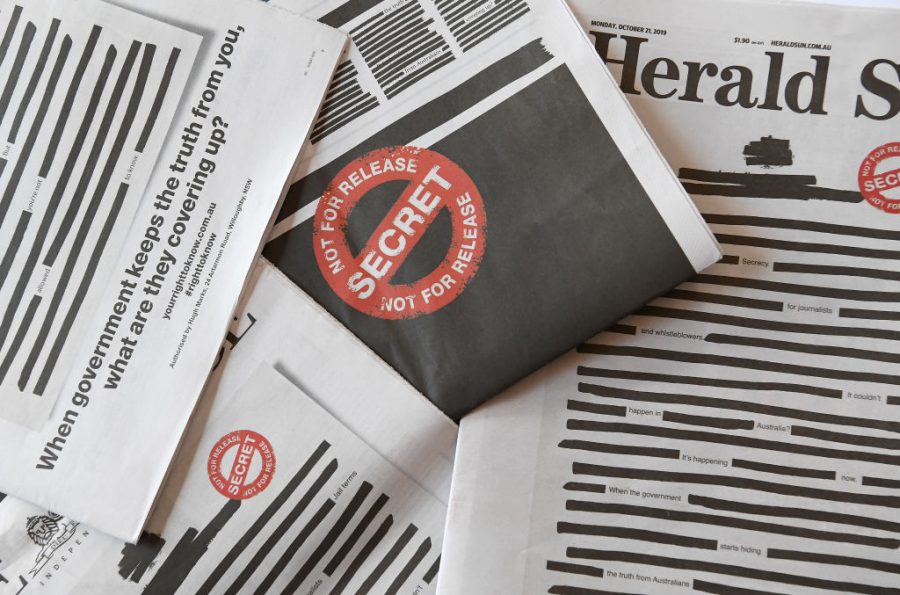-
Press freedom under threat in the South Pacific
Graeme Dobell | November 30, 2019Journalism has always been a tough trade in the South Pacific but growing pressure from China is threatening to make the situation worse.
-
Are legal curbs coming for social media?
Michael Douglas | November 28, 2019Defamation law reform may see social media companies held liable for what they publish, but while this would be good for lawyers, it might be chilling for free speech.
-
The fracturing of our media and our community
James Arvanitakis | November 23, 2019The decline of traditional media has removed control of the news from a handful of moguls, but they’ve been replaced by tech-giants and algorithms which damage society’s ability to hold a shared conversation.
-
Face to face with Facebook
Nasya Bahfen | November 20, 2019Beleaguered social network Facebook is charging ahead with plans for world domination despite falling public trust in its administration and multiple investigations by lawmakers in the US.
-
Canberra’s secrecy obsession feeds on security fears
Graeme Dobell | October 31, 2019Australia remains the only democratic nation without strong national protection for freedom of speech and of the press and journalists are calling for reform in the face of Canberra’s assault on press freedom.
-
Who owns your content on social media?
Emi Berry | October 29, 2019Hardly anyone reads the contract terms when joining social media platforms, and so few users realise they are giving away their rights to their own material in the small print.
-
Political ‘doxxing’ – A Hong Kong case study
Elise Thomas | October 4, 2019Western social media companies must remain alert to the evolving tactics of those who use their platforms as a weapon against the Hong Kong pro-democracy movement.
-
Snarky tweets and national security
Tim Watts | October 3, 2019The most common form of interference in democratic elections isn’t direct tampering with results but disinformation campaigns to undermine candidates, increase polarisation and reduce public trust in institutions.
-
Victoria moves to curb online abuse
Jay Daniel Thompson | October 2, 2019Proposed laws in Victoria to curb online trolling, hateful tweets and death threats could be a step in the right direction to protect people from abuse while maintaining freedom of speech.
-
In praise of democracy’s detectives
Bill Birnbauer | September 24, 2019The news for journalism in the past decade has been decidedly glum but investigative journalism – the highest form of the craft – is actually in a healthy state.
-
Twitter and Facebook counter China’s information onslaught
Jake Wallis | August 22, 2019The bans on Chinese propaganda accounts by Twitter and Facebook highlights how the Chinese government uses media power to shape the narrative and project its own interests.
-
Friends, Romans, fake news
David McInnis | August 15, 2019In a world of ‘alternative facts’ and spin, Shakespeare’s plays can help teach us how to grasp complexity and expose manipulation.













